Partisanship should have no place in Indigenous voice to parliament debate
Let us hope the voice debate becomes more high minded. There have been nasty slurs by Yes advocates, describing No advocates as being driven by racism. But conservatives cannot claim victimhood.
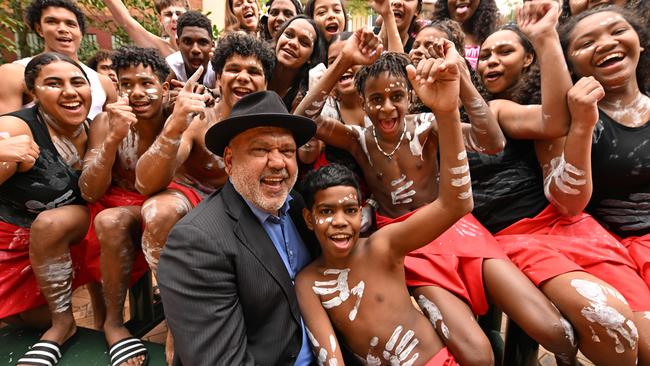
Some right-of-centre politicians who, for a decade or more, have shied away from tough debates where they should have stood for conservative values on energy, economic and education policy are looking to fight back in the culture wars via opposition to the voice.
This is the wrong issue because the voice is a conservative and worthwhile reform, and opposing it only divides the nation and runs the risk of defining the Coalition parties as regressive and hard-hearted for decades to come.
As it always does in a functioning democracy, the onus will fall to voters, who are likely to be more phlegmatic and practical than the political/media class on this proposal. The voice amounts to a fair go for Indigenous Australians – that is all.
Bizarrely, all sides of the debate agree on this point because none of them has a problem with a legislated voice. The previous Coalition government did an enormous amount of work on how it should be constructed – I should know, I was on the committee.
The only question to be settled in public debate is whether enshrining the voice in the Constitution carries unacceptable risks. That is it – nothing else in this debate amounts to a hill of beans.
To argue the constitutional risks are too high, without proposing a viable alternative, is to concede that it is beyond the wit of this nation to alter its Constitution in such a way as to avoid unintended consequences. That cannot be right. The overwhelming heft of constitutional legal advice suggests the proposed wording is adequate and safe.
There is no surprise in claims we can expect legal challenges; that is what we should expect in a democracy under the rule of law.
The question is whether the constitutional clauses are robust and precise enough to withstand vexatious action. By broadening parliamentary power over matters relating to the voice, the final wording ensures parliament can control not only how the voice works but how its advice is handled. This is a useful additional reassurance. Keep in mind, if you really want to stretch the point and chase the fearmongering to its logical conclusion, if an Indigenous voice ruined governance in this nation and divided 3 per cent of us from the other 97 per cent, then we all know there is a resolution available – another referendum to remove the voice. That will never happen, of course, because if a voice is constituted it will be properly constrained and, if necessary, refined, by parliament – but it is the failsafe protection.
As for a voice rampaging across all government decisions, it will be constrained by the Constitution and public debate. The Constitution limits the remit to matters relating to Indigenous Australians and if it attempts to stray outside these boundaries, political reality will keep the voice in its lane. No political body operates in a vacuum and if it makes a mockery of itself, the voice will become impotent and fall to the wayside of political debate. Like any representative body, its authority and success will be directly linked to how sensibly it operates.
This leads us to one of the most important conservative arguments for the voice. The proposal is not just about rights and justice, it is about responsibility and accountability, which is why it has unique potential to deliver practical outcomes. Whatever we have been doing to close the gap in the past 100 years has not worked and we know that nobody, least of all politicians, bureaucrats, Indigenous leaders or voters, accepts responsibility for our failures. This national shame is dismissed with a shrug of the shoulders as some amorphous, blameless blight.
If the referendum succeeds, a national voice will be charged with achieving outcomes. It will propose ideas and advise governments on how to close the gap – if efforts succeed the voice will share ownership of the triumphs, and if outcomes do not improve the voice will have to accept some responsibility and accountability for those failures.
(Hopefully there will also be local and regional voices informing the national voice, as outlined by the Coalition’s co-design process, but this is the level of detail that, so far, Anthony Albanese wrongly has kept from the debate.)
Still, this point about responsibility and accountability is crucial, and it is a pity it is not made by the Prime Minister or other leading advocates. This reform is about Indigenous Australians wanting and needing not only rights but also responsibility.
There is no single owner of the voice concept; the antecedents for the idea go back many decades and many people, Indigenous and non-Indigenous, have had constructive input across the past decade. But no one has contributed more to the intellectual framework and political positioning than Cape York leader Noel Pearson.
His 2014 Quarterly Essay, A Rightful Place, crystallised the rationale behind a voice, and it drew heavily on the philosophy and practical experience he developed at Cape York, especially as articulated in his seminal work, Our Right to Take Responsibility, in 2000. Pearson’s “rightful place” argument said: “Indigenous Australians now want our equal liberty. We want the freedom to take responsibility.”
This is the perfect retort to conservatives who portray the voice as some kind of special privilege – as if the most disadvantaged group in this country is somehow asking for too much. No – the voice idea says, “Give us a say, and some responsibility for our own outcomes,”
Properly instituted, this can deliver only increased accountability over the tens of billions of dollars and enormous input of human resources that annually are directed at trying to redress Indigenous disadvantage with too little success. It is a conservative idea over which progressives have tried to claim ownership. This leftist advocacy, with its customary emotionalism and sanctimony, is a problem because while it might solidify progressive support, it alienates conservatives. Mainstream voters hear Attorney-General Mark Dreyfus smearing Peter Dutton as a Nazi sympathiser one day and inviting him to offer bipartisan support on the voice the next.
It is galling and destructive. But this unfortunate hyper-partisan overlay does not change the genesis or true character of the voice.
While Albanese has been reassuring on foreign and defence policy, he is floundering on the economy and doing enormous damage on energy. But defeating the voice to inflict damage on the Prime Minister and Labor would be national self-harm of an even deeper order – partisanship should have no place in this debate.
Mature players and voters can both rail against identity politics gone mad and the overreach of radical Indigenous activists that will continue with or without a voice while supporting the voice as a fair and useful institution to try to marshal and resolve outstanding issues. Sadly, delays in putting the voice referendum have lobbed it into an increasingly toxic cultural debate while voters are starting to lose faith in federal Labor.
Albanese’s first major mistake on the voice came the night he was elected and surprisingly focused prominently on the voice – this immediately infused the project with a partisan bent. The idea took decades to come together; constitutional conservatives from the Liberal Party contributed to the formulation, and then against the odds a widespread national Indigenous consensus was formed over the three years leading up to the Uluru Statement from the Heart, and it was another five years on when Albanese claimed the whole shebang in a triumphalist election night speech.
Talk about a strategy to alienate conservative support. He should have reached out to nurture this as a bipartisan endeavour.
Since the election Labor’s transparent plan has been to run “on the vibe” of the thing, avoiding the substantive debates and refusing to outline the shape of the legislative voice it would enact after a successful referendum. It is clear it wants to avoid detailed debates about various models in the manner that derailed the republic referendum – but it misunderstands the task. Voters need more detail. They are being told the parliament is supreme and can change the shape of the voice, but they are not being shown precisely what it is that Labor wants to mandate.
This makes the federal Opposition Leader’s questions reasonable and powerful (although I have answered them in these pages). Every day Albanese refuses to provide some sort of answer to these questions is another day support for the voice will dwindle.
Let us hope the debate becomes more high minded. There have been nasty slurs by Yes advocates, describing No advocates as being driven by racism.
But conservatives cannot claim victimhood. Leading No advocates also routinely denounce the voice proposal as a racist plan that imposes apartheid on the nation.
That R-word ought to be barred from the debate in favour of another: reconciliation. Most Australians support Indigenous reconciliation, and we need to consider how this debate can advance it or undermine it.


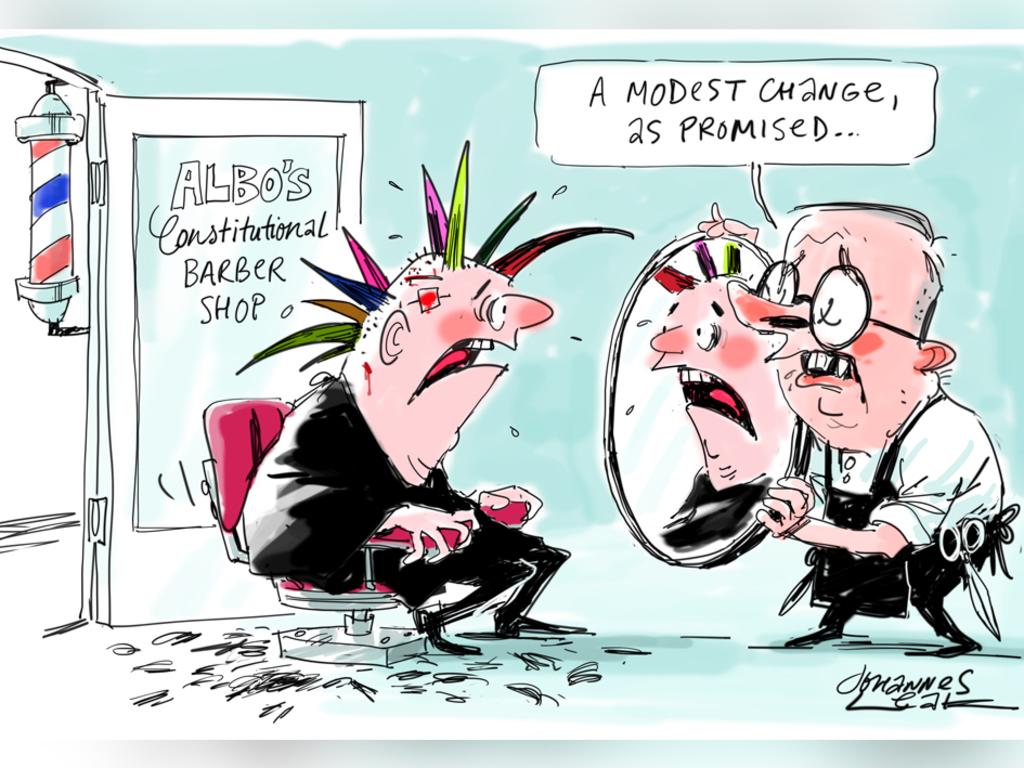
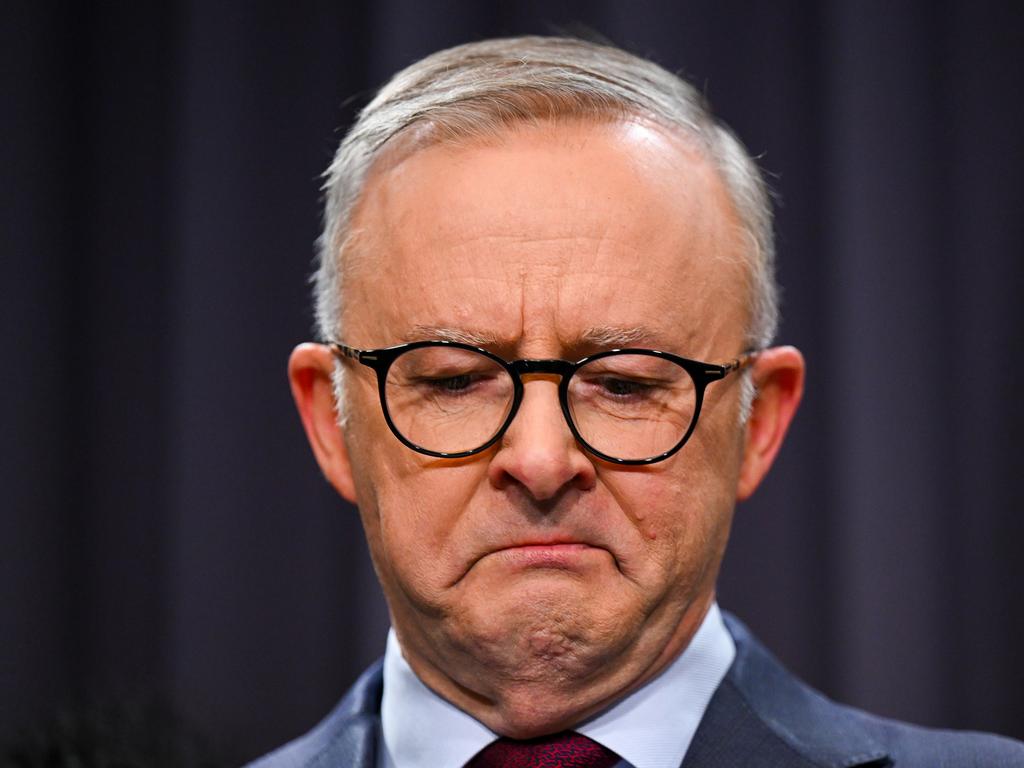
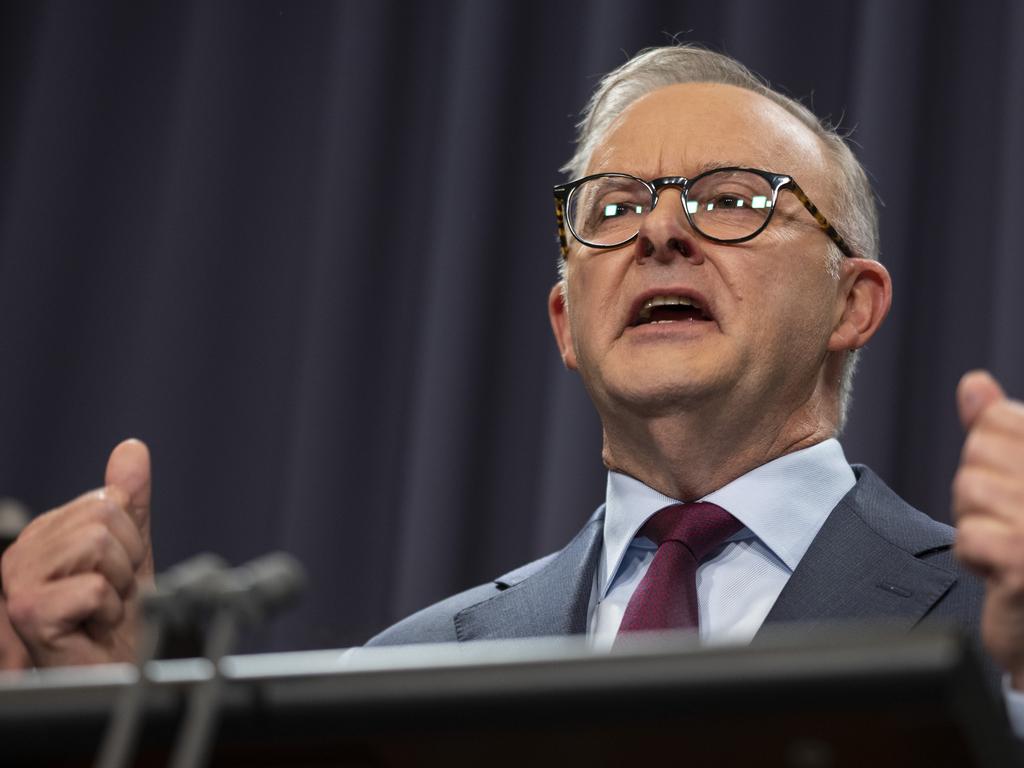
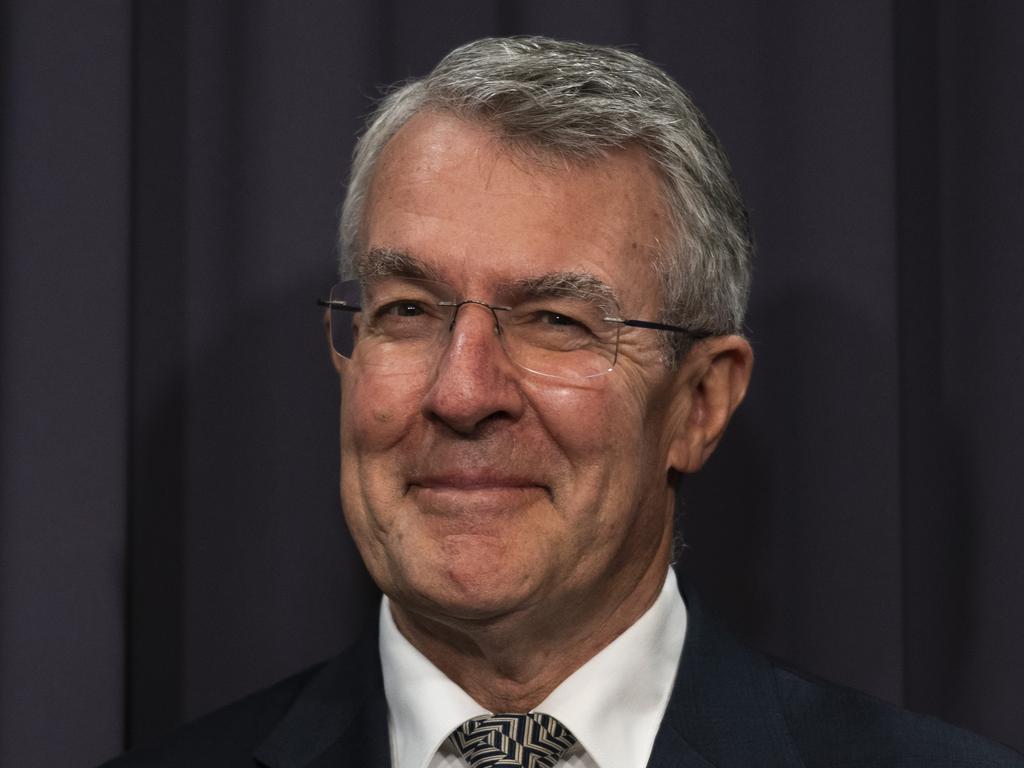


The elegantly fair and worthwhile concept of an Indigenous voice to parliament is too important to be destroyed by mere politicians. Opponents and proponents, progressives and conservatives have allowed political ambitions and hyper-partisanship to pollute the debate so far.